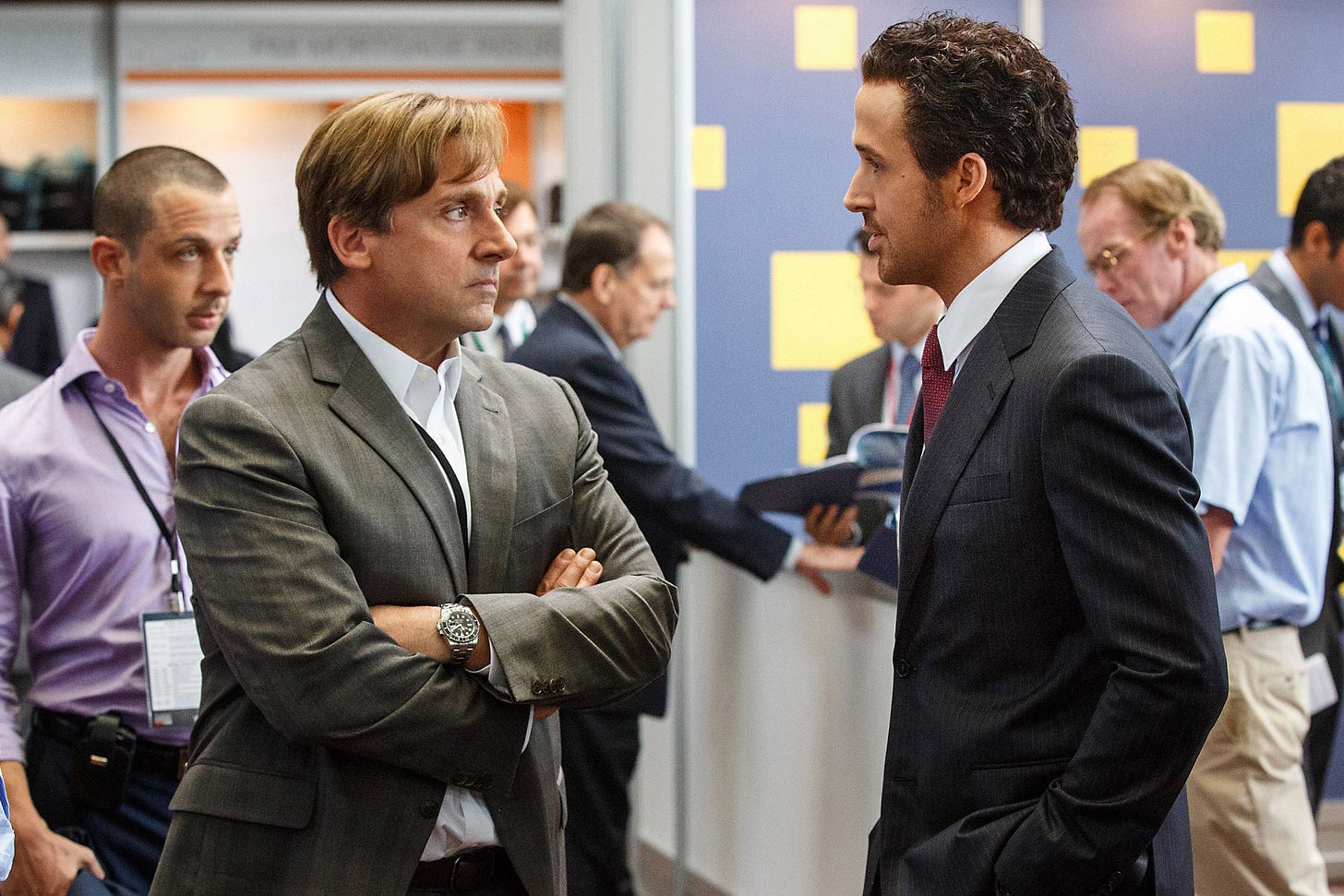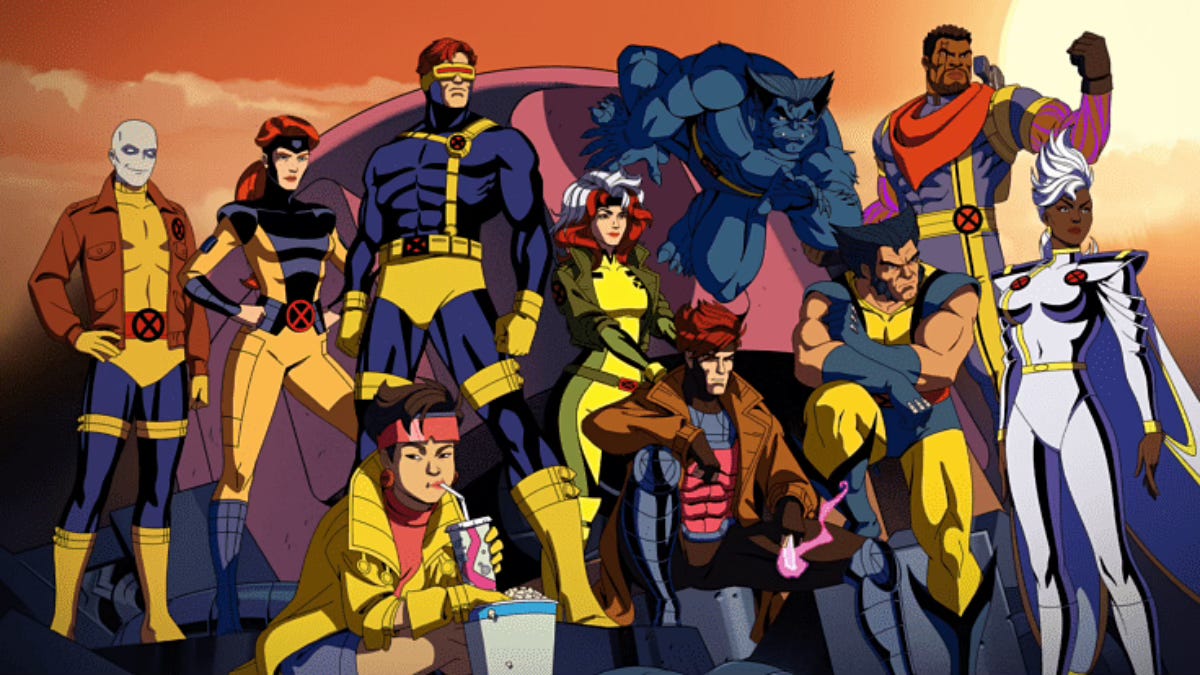In fiction as in life, there’s often not a single villain. A web of connected individuals, an entire society, or generations of enshrined ideals can make up the antagonistic force the hero must battle. How do we recognize when a story needs this bigger scope, and how can it be visualized as part of a compelling story?
Tom Joudrey looks at American History X, and how it explores the systems indoctrinating young white men into hate groups. Joudrey’s interest is partially in how, during its release, some derided it as a straw man story, but years of perspective show it was an unheeded warning about aggressive radicalization. Diana Evans discusses gatekeeping systems in publishing and media through the lens of American Fiction, and how they direct creators from marginalized communities toward making “trauma porn” for white audiences.
At the personal level, Mandy Brown wants you to stop using the phrase “imposter syndrome,” and realize that there are systems making you feel inadequate (You’re not doing it to yourself). Adam Mastroianni points to the failure of anti-drug educational programs, and how challenging it is to pull people out of the systems influencing their behavior.
Matthew Rosza starts with how 10% of households are responsible for 40% of US greenhouse gas emissions, then pivots to examine the systems that obscure this fact and keep the global warming prevention conversation focused on collective individual responsibility.

The Plain Bagel walks us through The Big Short, highlighting how it makes a coherent story out of the multiple interconnected causes of the 2008 global financial crisis. Adam McKay dissects the scene where a Jenga tower helps explain mortgage-backed securities.
Samantha Stauf considers the ways X-Men stories draw parallels to many marginalized communities fighting for rights and recognition, putting particular focus on LGBTQ+ rights. Dante A. Ciampaglia collects Stan Lee’s quotes about the allegorical intent of the X-Men, including:
Let’s lay it right on the line. Bigotry and racism are among the deadliest social ills plaguing the world today.1 It’s totally irrational, patently insane to condemn an entire race—to despise an entire nation—to vilify an entire religion. Sooner or later, we must learn to judge each other on our own merits. Sooner or later, if a man is ever to be worthy of his destiny, we must fill our hearts with tolerance.
John Jennings breaks down the X-Men comic storyline “God Loves, Man Kills,” to look at Reverend William Stryker as an avatar of oppression, and its connections to the civil rights movement. Jason Collins asks if Magneto was right, and if his calls for mutant separatism should be seen as a path to dignity.
Elaine Castillo contrasts the Watchmen TV series and its focus on Black lives and history with fantasy narratives that center their stories on white characters in “oppression cosplay.”
👋 Are you new here?
Inneresting is a weekly newsletter about writing and things that are interesting to writers. Subscribe now to get more Inneresting things sent to your inbox.
Previously on Inneresting…
In case you missed it, last issue’s most clicked link Jason Kottke does a round up about the Napoleon Dynamite problem, and how Netflix offered a prize to improve its algorithm’s ability to predict other movies people will want to watch.
What else is inneresting?
Caroline Cala Donofrio decides to take up the offer on a flyer to watch a masked man eat an entire jar of cheeseballs in the park, and discovers the magic of a crowd supporting a performer’s dream.
Motion to adopt Neil Gaiman’s terminology and now exclusively refer to AI as “drunk plagiaristic elves.”
Joshua Rigsby takes his family to Babyland Hospital, a cringe-inducing spectacle that’s part Cabbage Patch Kid gift shop and part plant-based body horror.
And that’s what’s inneresting this week!
Inneresting is edited by Chris Csont, with contributions from readers like you and the entire Quote-Unquote team.
Are you enjoying this newsletter?
📧 Forward it to a friend and suggest they check it out.
🔗 Share a link to this post on social media.
🗣 Have ideas for future topics (or just want to say hello)? Reach out to Chris via email at inneresting@johnaugust.com, Mastodon @ccsont@mastodon.art, or Bluesky @ccsont.bsky.social
Post-Credits Scene
We’ve all got a platypus2 controlling us.
Written in December, 1968.
It’s a metaphor. Usually.



